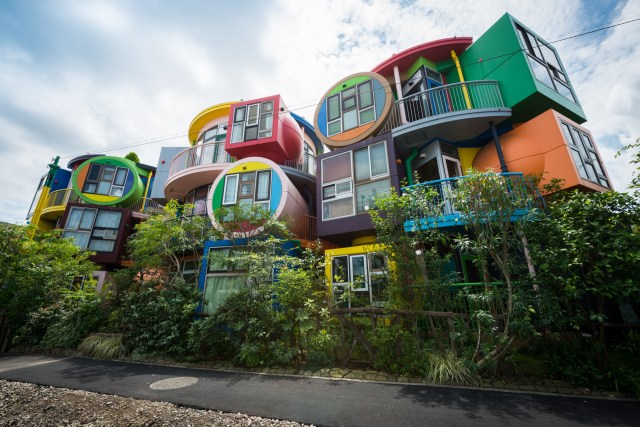
Architectural landmark in Tokyo faces a shaky future.
While big skyscrapers like Tokyo Tower and Tokyo Skytree tend to get all the fame and glory when it comes to famous landmarks in Japan, there are a lot of smaller buildings that are just as deserving of attention.
One of those buildings is Reversible Destiny Lofts Mitaka – In Memory of Helen Keller, which has become something of an international tourist destination in its own right, after appearing on famous TV shows like HBO’s Girls.
Built in 2005 by artist and architect Shusaku Arakawa (1936-2010) and his partner Madeline Gins (1941-2014), the colourful three-building complex contains nine apartments, all dedicated to the memory of Helen Keller.
▼ Arakawa and Gins
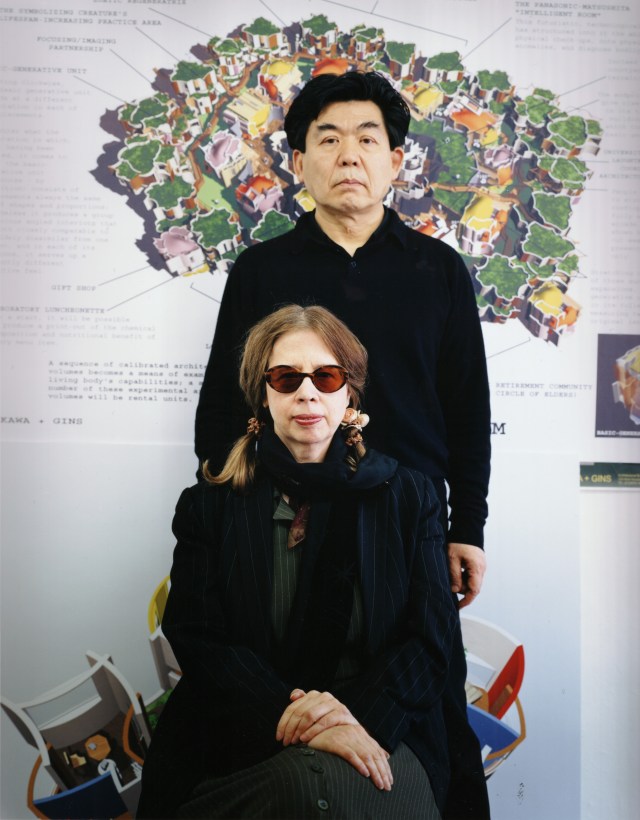
Keller’s ability to overcome sight and hearing impairments and reverse the destiny of her life was the inspiration behind these apartments, which are filled with colour and unexpected details like textured, sloped floors to create stimulating environments so that residents too can lead long and vital lives.
▼ Studio Ghibli co-founder and director Hayao Miyazaki, pictured here with Arakawa, is one of many fans of the complex and its unusual design features.
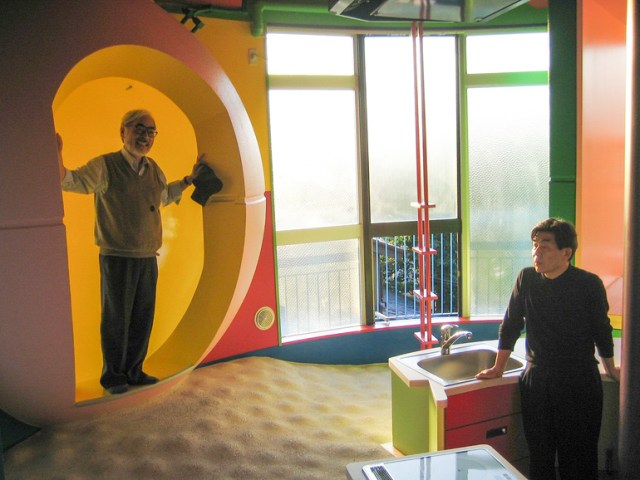
While the buildings’ ethos is all about invigorating lives and reversing destinies, the Reversible Destiny Lofts is now looking to reverse its own destiny, as it now faces a shaky future due to the coronavirus pandemic.
According to the Tokyo office of Shusaku Arakawa and Madeline Gins, which manages the complex and oversees rental of the apartments and educational and cultural events onsite, major repairs were planned in 2020 to celebrate the site’s 15th anniversary.
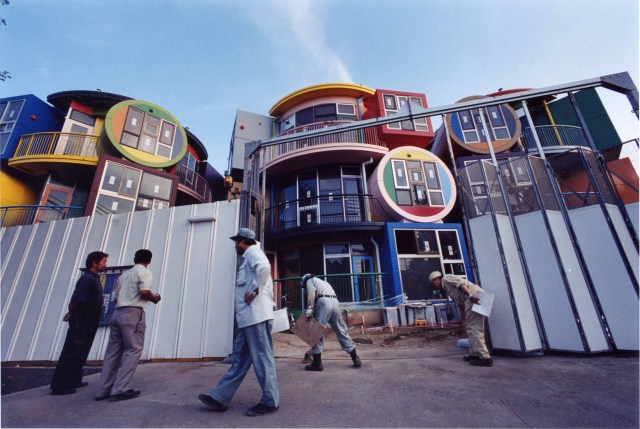
However, due to coronavirus restrictions during the pandemic, all events had to be cancelled and the number of regular tour visitors and short-stay residents decreased sharply. This drop in income left the managing company in a bind, as they were unable to cover the cost of restoration as planned, leading them to set up a crowdfunding campaign to help save the building and secure its future.
▼ During a normal year, the site welcomes visitors from around the world.
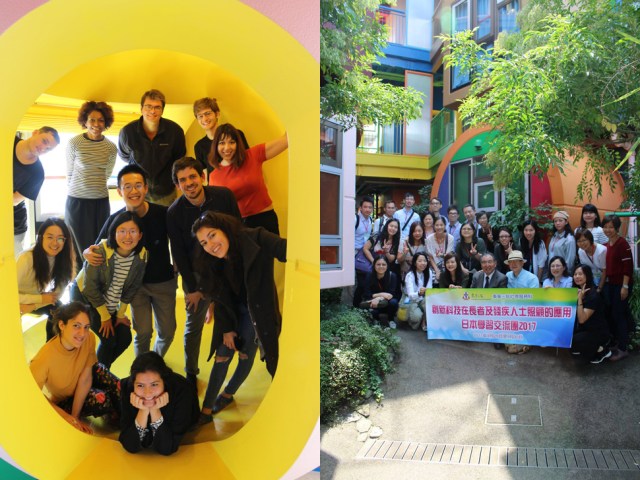
A spokesperson for the Reversible Destiny Lofts says if repairs don’t happen, the damage will spread to other parts of the complex, increasing the danger of irreparable repairs.
▼ Arakawa onsite during the original construction.
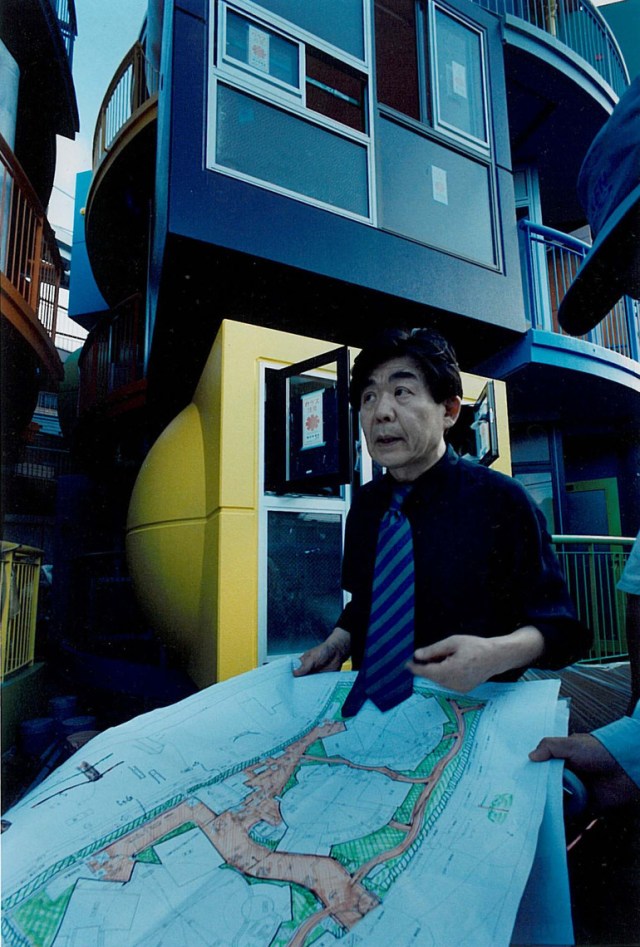
All of the money received from the campaign will be used for large-scale repairs, and in return, backers will be able to receive rewards such as tour invitation tickets (5,000 yen [US$45.46]) and telework plan invitation tickets (30,000 yen).
▼ A very unique place to telework
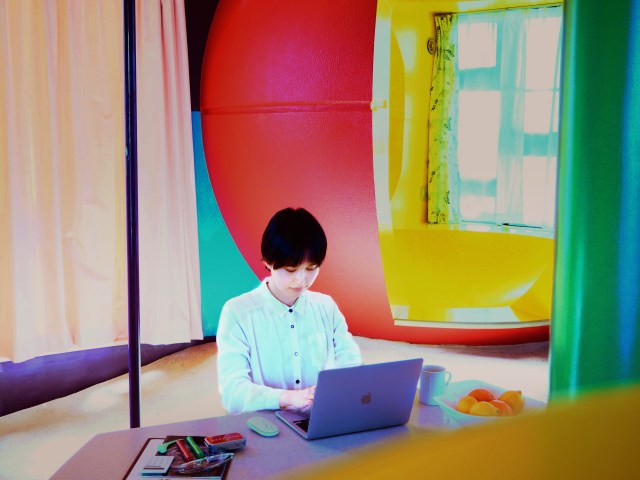
For 100,000 yen (US$909.14), supporters will be able to enjoy a short stay at one of the apartments, covering two people for three nights and four days, while 1 million yen (US$9,091.40) will net you a stay for four people for 30 nights and 31 days.
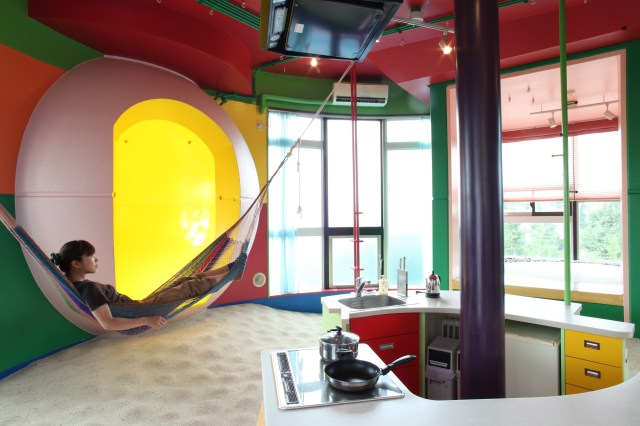
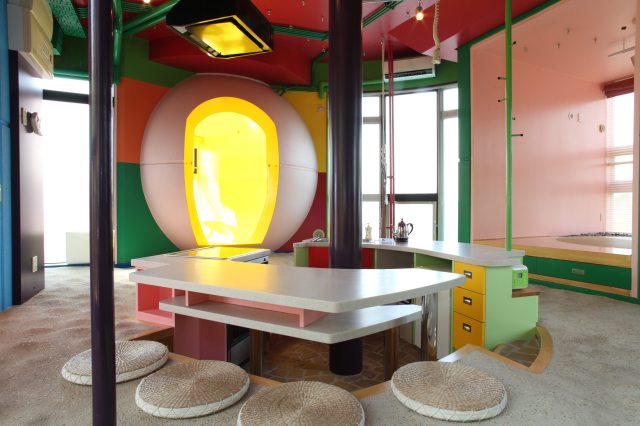
The campaign’s target goal is 10 million yen, and in less than a week since starting, it’s raised just over half of that — 5,052,765 yen as of this writing, with 83 days left in the campaign. It’s hoped that with the help of supporters, this “liveable work of art” will be able live on in future and continue to spread its message of unconventional vitality to visitors from around the globe.
With the recent news that Tokyo’s iconic Nakagin Capsule Tower will be demolished, it would be a shame to have to say goodbye to this iconic complex too.
Source: PR Times via Net Lab
Featured image: PR Times
Insert images: PR Times, Motion Gallery
● Want to hear about SoraNews24’s latest articles as soon as they’re published? Follow us on Facebook and Twitter!

No hay comentarios:
Publicar un comentario